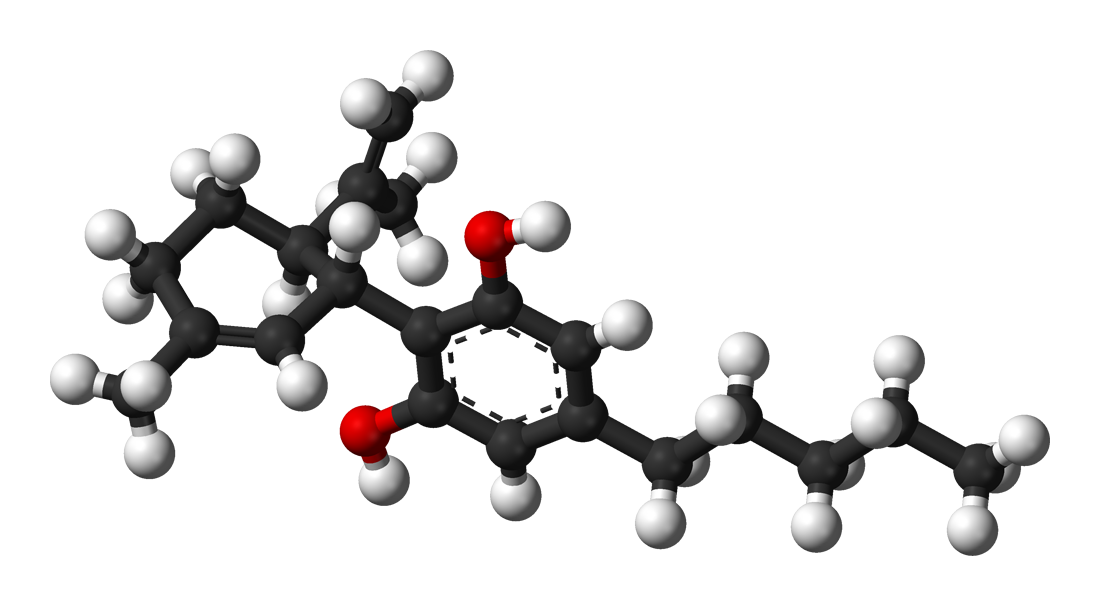
Cannabidiol (CBD)
Cannabidiol (CBD): effects, medical applications and special features
Cannabidiol, better known as CBD, is a chemical compound extracted from the hemp plant (Cannabis sativa). It is one of over 100 cannabinoids found in the plant and is becoming increasingly popular, mainly due to its potential health benefits. Unlike tetrahydrocannabinol (THC), another prominent cannabinoid, CBD is non-psychoactive and does not produce a ‘high’ feeling, making it an attractive alternative to conventional medication for many people.
Effect of CBD
CBD is often described as calming and anxiolytic. It does not act directly on the cannabinoid receptors CB1 and CB2 in the body, as THC does, but indirectly modulates their activity. Instead, CBD interacts with other receptors and neurotransmitter systems in the body. Of particular note is its effect on the endocannabinoid system (ECS), which plays a central role in regulating processes such as sleep, mood, appetite and pain perception.
In addition, CBD also interacts with serotonin receptors, which could explain its mood-enhancing and anxiety-relieving properties. Studies show that it can influence serotonin levels in the brain, similar to certain antidepressants, but without their side effects. In addition, CBD binds to vanilloid receptors (TRPV1), which play a role in pain perception and inflammatory responses. As a result, CBD has an anti-inflammatory and pain-relieving effect.
There is evidence that CBD has antioxidant and neuroprotective properties, making it a promising candidate for the treatment of neurological disorders. Thanks to its versatile mechanisms of action, CBD opens up a wide range of possible applications that can cover both acute complaints and chronic diseases.
Medical applications of CBD
The therapeutic applications of CBD are diverse and well documented, both in scientific studies and through patient testimonials.
- Anxiety and stress
CBD is often used by people with anxiety disorders as it has a calming effect without the sedating side effects of traditional medications such as benzodiazepines. It can be helpful for generalized anxiety disorder, social phobia and even post-traumatic stress disorder (PTSD). - Pain and inflammation
Chronic pain, often associated with conditions such as arthritis, fibromyalgia or migraines, can be relieved by CBD. Its anti-inflammatory properties also make it a natural alternative to non-steroidal anti-inflammatory drugs (NSAIDs), which can have side effects with long-term use. - Epilepsy
One of the best-known medical applications of CBD is the treatment of epilepsy, particularly difficult-to-treat forms such as Dravet syndrome or Lennox-Gastaut syndrome. In many countries, CBD is approved as a prescription drug. - Sleep disorders
Many people use CBD to improve their sleep. It can shorten the time it takes to fall asleep and improve the quality of sleep by reducing anxiety and relaxing the body. - Neurodegenerative diseases
The neuroprotective properties of CBD make it a focus of research into diseases such as Parkinson’s, Alzheimer’s and multiple sclerosis. It is believed that CBD can help to slow down the progression of such diseases and improve the quality of life of those affected.
CBD strains and THC ratios
Choosing the right CBD strain depends on individual needs and health goals. Strains with particularly high CBD levels and a low THC content are ideal for people who want to enjoy the health benefits of cannabis without experiencing psychoactive effects.
Some popular strains with striking THC-to-CBD ratios are:
- Charlotte’s Web: This strain is known for its high CBD content and was originally developed for the treatment of epilepsy.
- ACDC: With a ratio of around 1:20 (THC:CBD), this strain offers maximum relaxation and is ideal for relieving pain and stress.
- HarlequinThis strain has a balanced ratio of THC to CBD (about 1:1) and offers a mild, relaxing effect without impairing the mind.
Conclusion
CBD has proven to be a versatile substance that has applications in many areas of medicine. From relieving chronic pain and anxiety to assisting with neurological conditions, CBD offers numerous benefits without the intoxicating effects of THC. Although research into CBD is still in its infancy, the results so far show enormous potential. Choosing the right strain and dosage is crucial to achieving the desired effects.


